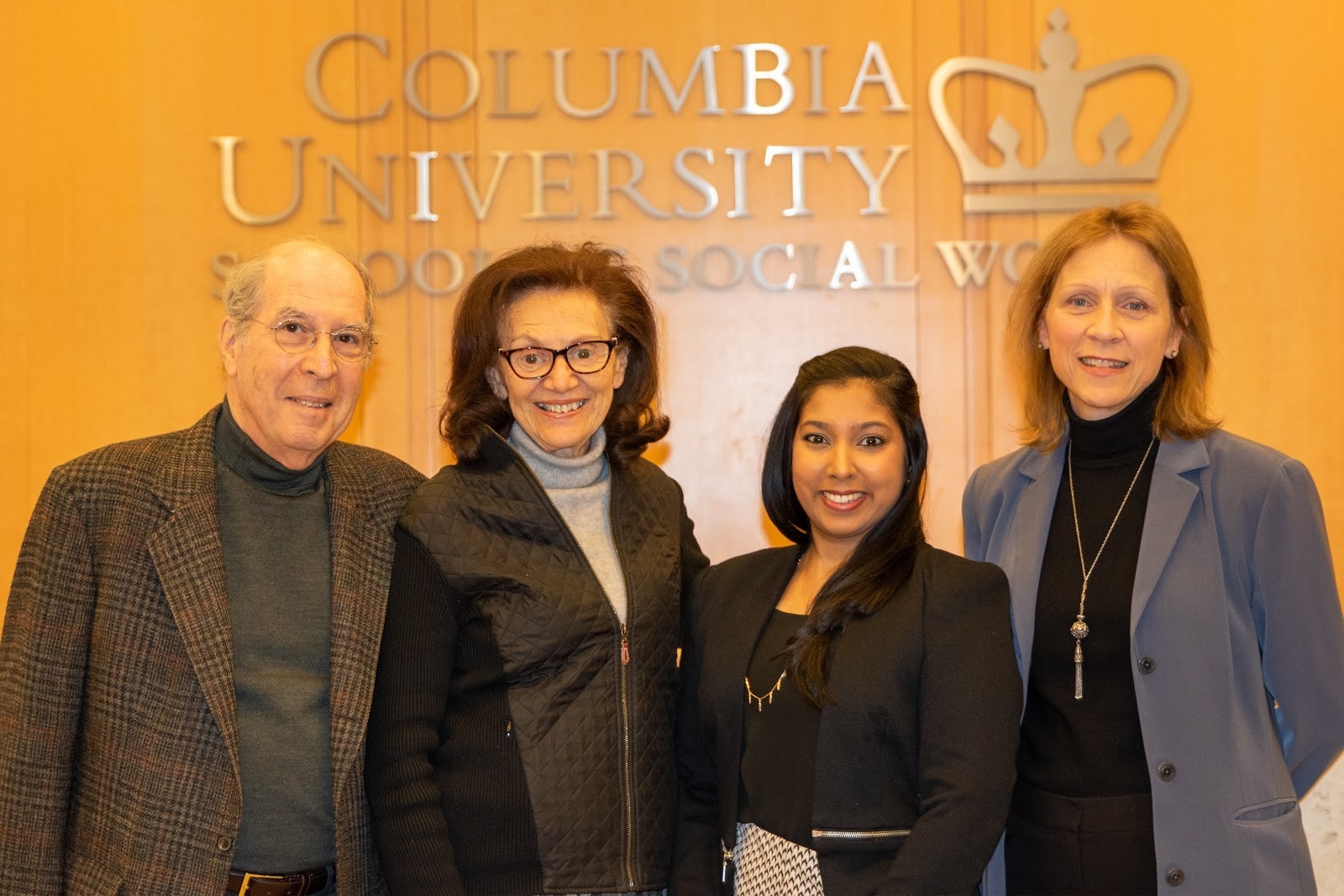Members of the ASPIRE team recently traveled to Jordan to work with collaborators to interpret findings from the Women ASPIRE study, disseminate results, and continue to build a strong network of Non-Governmental Organizations in the region.
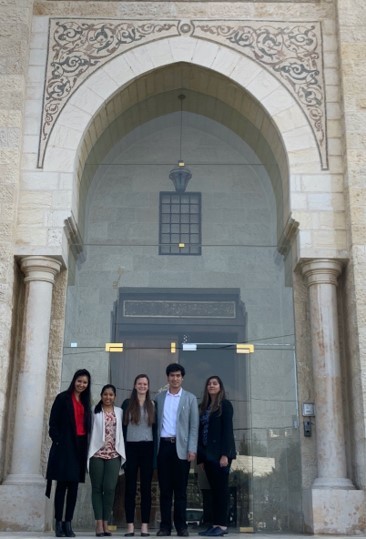
Last August, we announced that ASPIRE -- Advancing Solutions in Policy, Implementation, Research and Engagement for Refugees -- was awarded a grant from The American Assembly to increase its impact in addressing the Syrian refugee crisis by conducting a strategic dissemination event in Jordan bringing together scholars, health care professionals, policymakers, and local partners to interpret findings from the Women ASPIRE study and create policy and programmatic recommendations for health agencies in Jordan to meet the health needs of Syrian refugee women living outside of camps.
The collaborative trip to fulfill this mission in Jordan was completed recently by Dr. Anindita Dasgupta, Associate Research Scientist, and ASPIRE Director, and a team of ASPIRE Columbia University School of Social Work (CSSW) doctoral students including Mohamad Adam Brooks, Melissa Meinhart, and Ajita Singh. The team returned energized, and with a clear vision for the road ahead for Women ASPIRE.
Related: Columbia Global Center | Amman Global Story on Women ASPIRE:
The Women ASPIRE study examined the gendered health and mental health concerns among 507 Syrian refugee women living outside of camps in Jordan. Now, over the course of the visit, the Women ASPIRE team worked closely with partner agencies to share these research findings with important regional stakeholders including the Ministry of Health, NGOs, academic institutions, and United Nations agencies. Dr. Dasgupta, Dr. Maysa' Khadra (in-country Principal Investigator, and Associate Professor at the University of Jordan School of Medicine), and Mohammad Adam Brooks also presented these findings formally at a large dissemination event held at the Columbia Global Center in Amman.
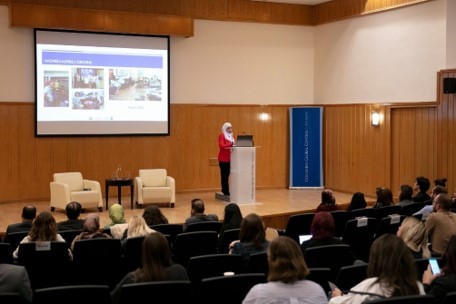
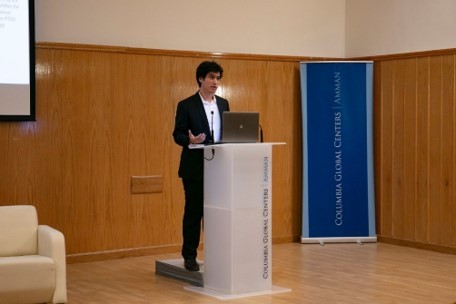
In particular, the Women ASPIRE team was interested in discussing mechanisms through which mental health among Syrian refugee women could be addressed in various relief settings in Jordan. Before the visit, the research team analyzed the study data and found that mental illness appeared to drive the majority of poor health indicators among women in the sample. As a result, the team’s main recommendations centered around finding sustainable methods to integrate high quality mental health services that also address gendered barriers of health -- such as gender-based violence -- into existing health structures without burdening already belabored health systems.
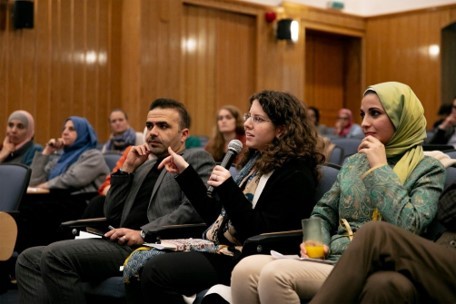
Throughout the visit, most agencies agreed on the importance of addressing both mental health and gender-based violence among Syrian refugee women. Many collaborators highlighted another important need, in addition to supporting Syrian women: Supporting vulnerable Jordanians to foster positive relationships between refugees and host communities.
Discussions also led to new collaborations, with future research plans aimed to improve gender-based violence measurement in Arab countries including the development of screening and brief intervention tools to identify and reduce both gender-based violence and mental illness. These tools can then be implemented by each partner agencies of each collaborator.
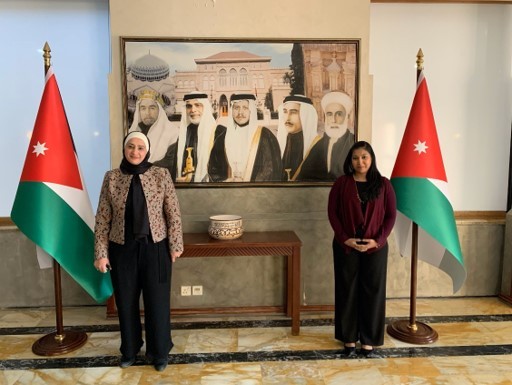
They also presented their findings to none other than …

...the Prime Minister of Jordan, Omar Al Razzaz! Dr. Dasgupta, Dr. Khadra, and Ms. Luma Samawai, a Women ASPIRE Research Coordinator, had the incredible opportunity to present study results from Women ASPIRE to His Excellency, who was eager to learn about the research and recommendations to improve the health of Syrian refugee women in Jordan.
Fortunately, the Social Intervention Group (SIG) has developed evidence-based interventions addressing both intimate partner and gender-based violence in projects including eWorth and WINGS, providing a platform to run psychometrics -- the theory and technique of psychological measurement -- on potential tools to use.
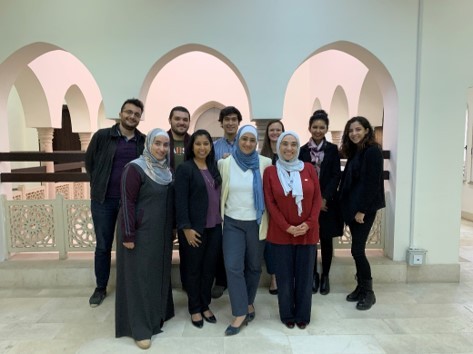
This visit also provided the opportunity for cross-institutional collaboration between Women ASPIRE researchers in both Jordan and from CSSW. Teams of faculty and students from both the University of Jordan School of Medicine, and CSSW worked together on manuscript development. This exchange of ideas and perspectives was easily one of the highlights of the trip.
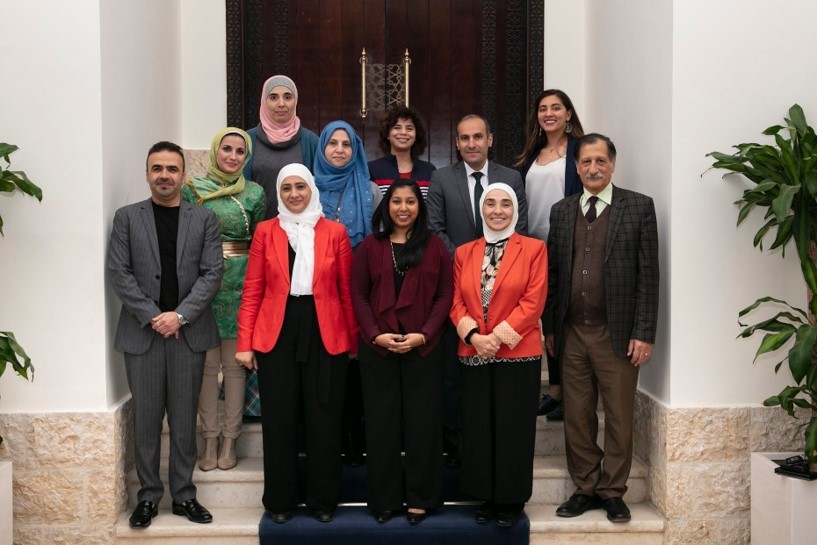
Next, ASPIRE plans to assess the drivers of poor maternal and child health care utilization, consider what factors are related to gendered inequities of health, and dive deeper into understanding factors associated with mental illness, and mental illness comorbidity -- that is, the presence of one or more additional conditions co-occurring with the primary condition.
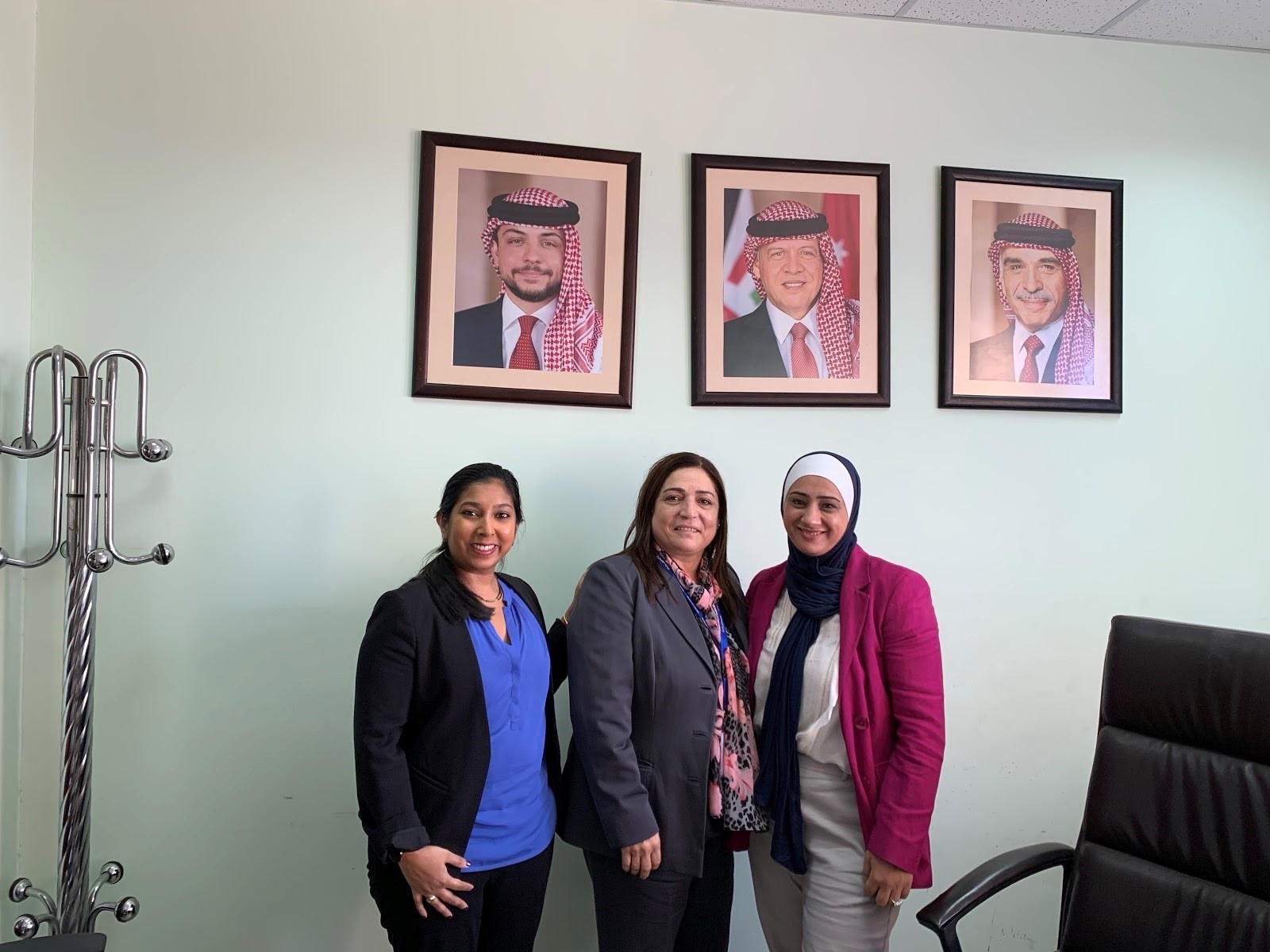
The ASPIRE team is thankful for their collaborators and funders that make this work possible.
To learn more about ASPIRE’s work, check out this video from the inaugural Willma and Albert Musher Lecture “Evidence-Based Practice in Humanitarian Crises: Examples and Lessons from the field” delivered by Dr. Dasgupta in December.
